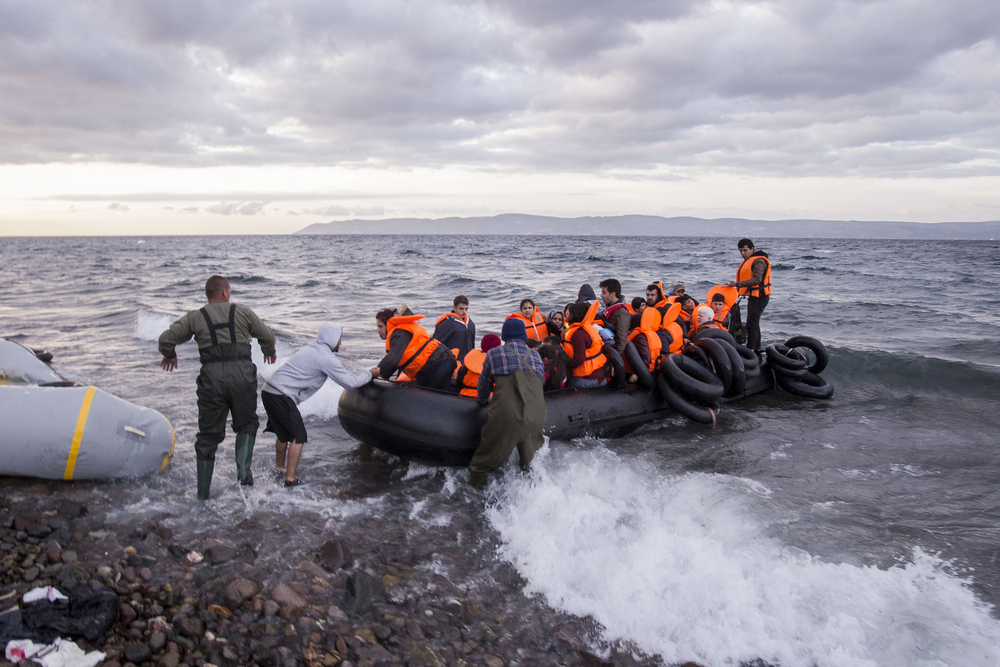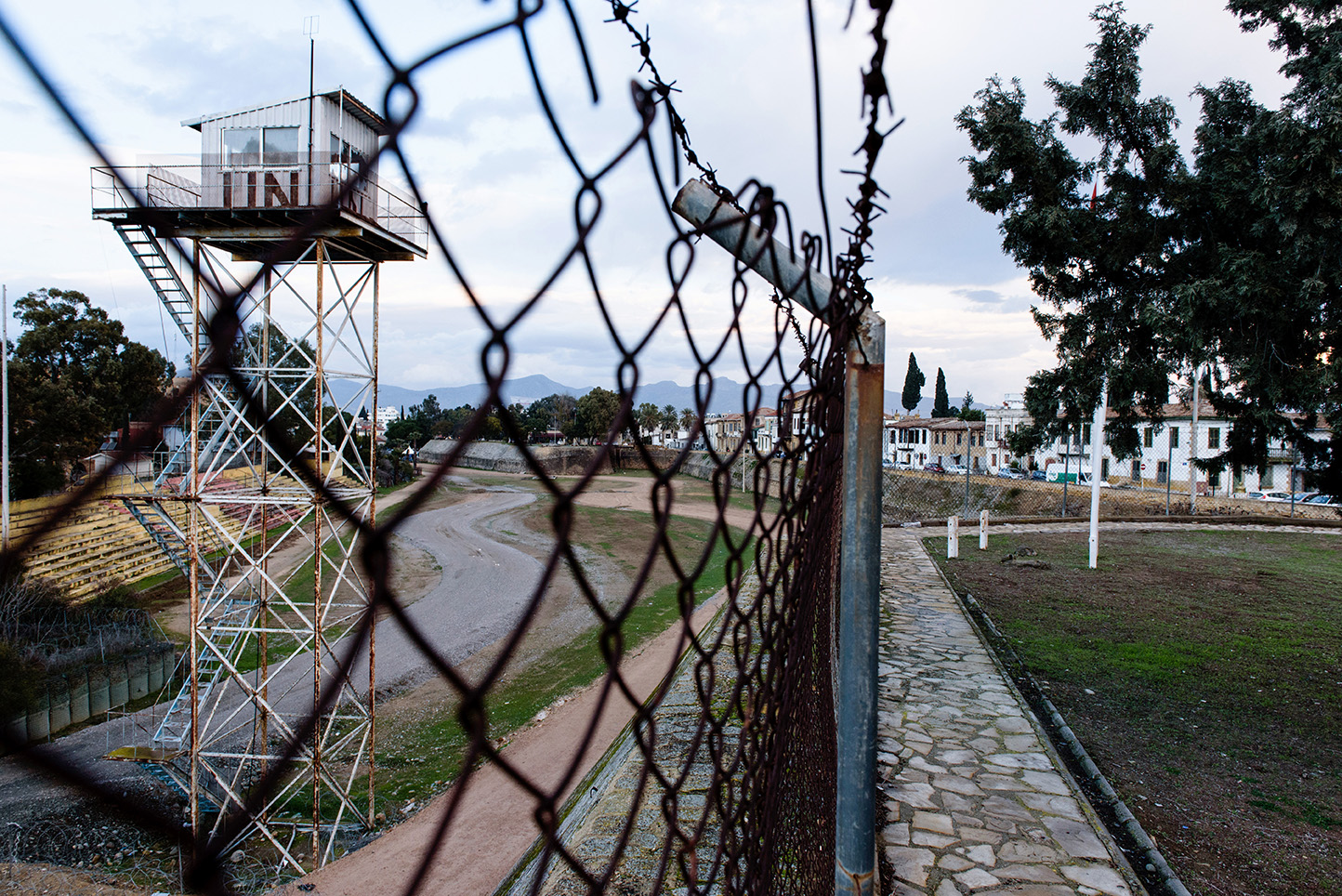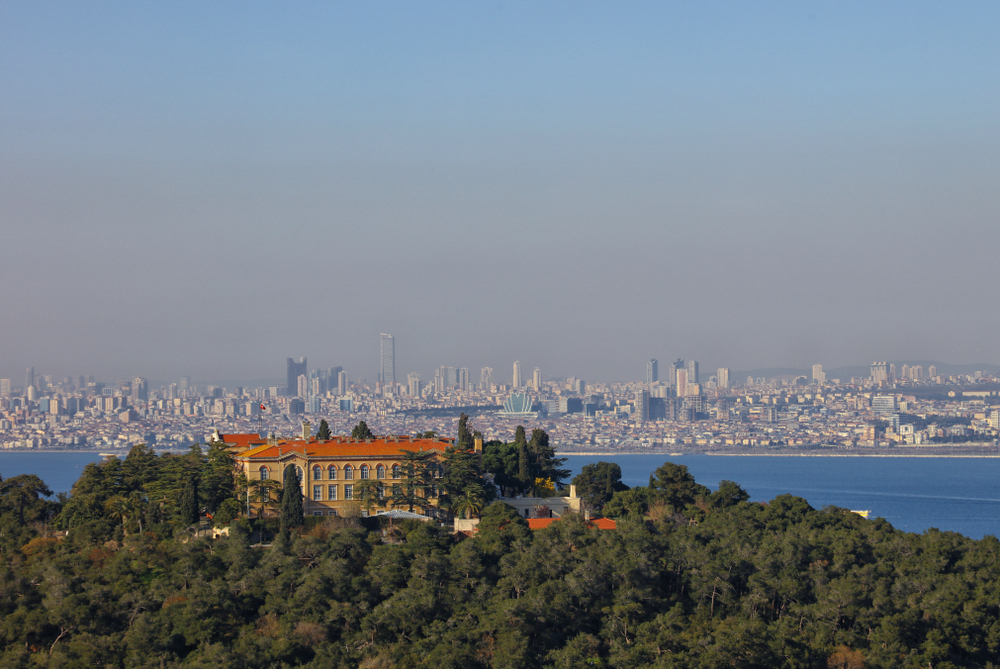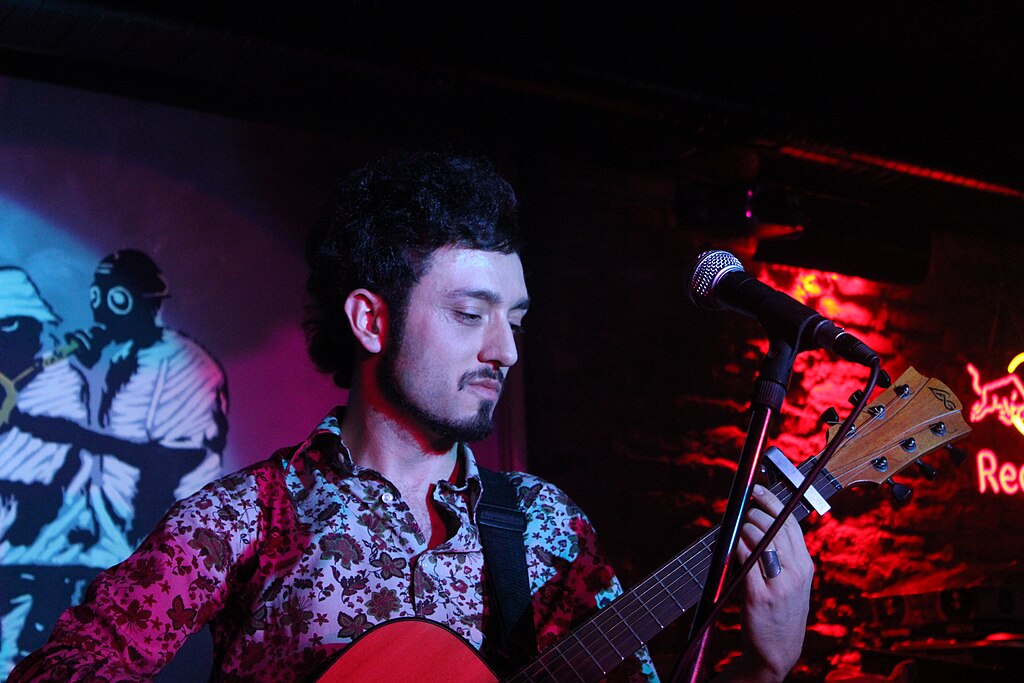Greece: going to jail for saving lives?
Twenty-four volunteers involved in rescuing migrants and refugees at sea are on trial in Greece. A controversial case, which targets that part of Greek and European civil society committed to saving lives in the Mediterranean

Greece-going-to-jail-for-saving-lives
Syrian refugees land in Lesvos - © Nicolas Economou/Shutterstock
Over the last months, many local and international media outlets have presented growing evidence of Greek authorities deliberately mistreating refugees. From gross negligence to illegal deportations and violent pushbacks, accusations against Greece’s controversial migrant policy are coming in waves. The Greek government ardently denies all accusations.
At the same time, the pending case of twenty-four aid workers facing up to 25 years in prison for helping border crossers on the island of Lesvos in 2016-2018 serves as a major deterrent to civil society actors working with refugees. Activists and social workers once in the frontline of refugee rescue operations are now thinking twice before committing any ‘act of human solidarity’ that could end up in them being sued by the Greek state.
The criminalisation of rescuers on Lesvos has shaken the Greek society for two reasons: first, it was the first incident of its kind, given that never before had civil society actors been charged with such heavy accusations; second, because among the people depicted as ‘smugglers’ there were public figures once hailed as ‘heroes’.
The defendants, 17 of whom are foreign nationals, were affiliated with the ‘Emergency Response Center International (ERCI)’, a nonprofit search-and-rescue group operating on Lesvos from 2016 to 2018. Their activity on the island resulted in them facing a whole raft of charges, including setting up and joining a criminal organisation, money laundering, espionage, breach of State secrets, and forgery as well as violations of the Immigration Code and electronic communications legislation.
Here is where the paradox lies: prior to his public humiliation by the Greek media, ERCI founder Panos Moraitis had been a well-respected public figure, praised by prominent actors for both his own life-saving initiatives and his organisations’ extraordinary involvement in rescuing people at sea. Between 2016 and 2017, Moraitis received numerous contribution awards, including one handed over by the head of the Hellenic National Defence General Staff; moreover, he attended high-profile events, some of which allegedly hosted by the Greek PM himself.
Another ‘controversial defendant’ is Sarah Mardini, a human rights activist and competitive swimmer from Syria. In 2015 Sarah, together with her sister, Yusra, now an Olympic swimmer, had saved 18 fellow Syrians from drowning when their boat started sinking due to a broken engine. The girls from Damascus had managed to drag the small boat to safety with a rope, gaining global appraisal and recognition for this act. Following her arrest, Sarah was accused, among others, for using her reputation to attract large grants and generous donations by donors that enabled ERCI to thrive.
Apparently, the prestige surrounding the organisation and its people attracted not only funds but also aid workers. Among the defendants are Seán Binder and Nassos Karakitsos, who claim that the organisation’s good reputation was one of the factors that drew them to the ERCI in the first place.
“I wanted to work with a ‘good’ organisation. I had heard that the ERCI was well-respected on the island and had good relations with the local authorities”, says Sean to OBCT, adding that the people of his organisation would often even assist the Coast Guard by providing first aid and equipment.
Things changed, however, on 9 February 2018, early at dawn, when the Greek authorities stopped the ERCI Jeep for entering restricted areas. The vehicle was allegedly bearing stolen plates. The two passengers, Seán and Sarah, got arrested. According to the local police report, they were carrying a naval radio listening to Coast Guard conversations, a pair of night binoculars, and cell phones that helped them communicate with their colleagues via a closed WhatsApp group, where they exchanged sensitive information. Following a prosecutor’s order, an investigation was launched that initially led to the arrest of five people and the issuance of arrest warrants for another 25, all members of the ERCI.
Thinking about that night, Seán cannot shake the feeling of frustration.
“The police acted as if they were seeing us and our jeep for the first time. Everyone in the island knew the ERCI vehicle because it stood out; it was not camouflaged. The police knew exactly where we would go each night, it was no secret. It was at a cliff end, a place that would allow us to locate and help anyone in need. We would be there around 2-3 after midnight, because this is when most crossings happen. When I got arrested, I said: is this a joke? These people know who we are, they know what we do”.
The aid workers’ arrest have triggered fervid public discussions among the Greek society over the role and mission of NGOs involved in migrant solidarity work. Opinions remain divided.
“I believe this is what the government wanted to achieve”, says a former activist on Lesvos. “Under enormous public pressure of ‘having to do something’ to address the uncontrollable illegal flows of refugees, the government found a scapegoat in civil society and demonised all workers assisting refugees”.
Researchers Laura Schack and Ashley Witcher, who have been investigating this shift in Greek national policy, analyse the phenomenon based on Derrida’s concept of “hostile hospitality”. The pattern is clear: Greece exhibited exemplary hospitality during the first phase of the refugee crisis when the situation was still blurred and everyone thought that this dramatic turn would be temporary. According to scholar Oikonomakis, that was the time when Greece took a step back and allowed local and international civil society ‘to take charge’ in order to manage the crisis.
Following the EU-Turkey agreement, however, the Greek government realised that the refugee issue is here to stay: from a ‘transit’ country, Greece turned into a long-term host, but without the necessary infrastructure to be one.
The situation soon escalated: on the one hand, refugees felt trapped in Greek territory and soon engaged in acts of indignation, such as vandalisms, assaults, and fires at camps; on the other hand, the local population, exhausted by the socioeconomic repercussions of long-term refugee presence on their lives and sources of income, started seeing refugees as intruders who threatened the country’s stability and ethnic identity. Greek hospitality became hostile and the stigma grew against civil society.
At a hearing on defenders of migrants rights with the UN Special Rapporteur on Human Rights Defenders Mary Lawlor published in October 2021, Greek civil society organisations accused local authorities and far-right activist groups of continuously attempting to intimidate them with threats and other forms of harassment.
“I am saddened by the fact that people are now hesitant to help others for the fear of getting in trouble”, shares Sean. “In an ideal world, there wouldn’t be any need for search-and-rescue conducted by civilians. There is a hierarchy – it is the authorities who are in a better position to do that. Unfortunately, however, there is a gap. People keep drowning at sea”.
After getting arrested, Mardini and Binder spent more than 100 days in pre-trial detention before being released on bail in December 2018. Mardini even spent a period incarcerated in Athens’ high-security Korydallos prison, before being granted asylum to Germany, where she is living to date, barred from entering Greece. The 24 defendants have been awaiting trial since then.
“Waiting is extremely painful and frustrating”, says Sean.
“We desperately want to go on trial to prove our innocence”, adds Nassos, whose case is even more peculiar, as he was charged after leaving the ERCI for other reasons.
A significant part of the international community has condemned the criminalisation of aid workers such as Seán, Sarah, and Nassos. Large humanitarian organisations such as Amnesty International, but also members of the European Parliament, have publicly asked for “a thorough review and change to Member State policies” that have led to their being sued.
Amid his personal ordeal, when asked if he regretted going to Greece to support refugees, Seàn pauses for a moment.
“Helping is a natural thing to do. All I did was try to help people that I thought were in danger”.
Greece is still in a process of negotiations over the new European Pact on Immigration and Asylum, a package of reforms designed to mark “a fresh start” for EU asylum and migration policy, that was introduced by the European Commission in September 2020.
While countries refrain from committing to a more humane and fair policy framework, the public debate over refugee management is heating up in Europe. In the meantime, dozens of people, including young children and babies, keep dying at sea.
Altough it dates back to 2018, the suing of the 24 ERCI aid workers by the Greek state became relevant again in November 2021, after the trial’s adjournment by the Misdemeanours’ Prosecutor of Mytileni, Lesvos. The judges cited lack of jurisdiction due to the presence of a lawyer among the accused and referred the case to a court of appeals. The new date of the trial remains unclear.
Greece: going to jail for saving lives?
Twenty-four volunteers involved in rescuing migrants and refugees at sea are on trial in Greece. A controversial case, which targets that part of Greek and European civil society committed to saving lives in the Mediterranean

Greece-going-to-jail-for-saving-lives
Syrian refugees land in Lesvos - © Nicolas Economou/Shutterstock
Over the last months, many local and international media outlets have presented growing evidence of Greek authorities deliberately mistreating refugees. From gross negligence to illegal deportations and violent pushbacks, accusations against Greece’s controversial migrant policy are coming in waves. The Greek government ardently denies all accusations.
At the same time, the pending case of twenty-four aid workers facing up to 25 years in prison for helping border crossers on the island of Lesvos in 2016-2018 serves as a major deterrent to civil society actors working with refugees. Activists and social workers once in the frontline of refugee rescue operations are now thinking twice before committing any ‘act of human solidarity’ that could end up in them being sued by the Greek state.
The criminalisation of rescuers on Lesvos has shaken the Greek society for two reasons: first, it was the first incident of its kind, given that never before had civil society actors been charged with such heavy accusations; second, because among the people depicted as ‘smugglers’ there were public figures once hailed as ‘heroes’.
The defendants, 17 of whom are foreign nationals, were affiliated with the ‘Emergency Response Center International (ERCI)’, a nonprofit search-and-rescue group operating on Lesvos from 2016 to 2018. Their activity on the island resulted in them facing a whole raft of charges, including setting up and joining a criminal organisation, money laundering, espionage, breach of State secrets, and forgery as well as violations of the Immigration Code and electronic communications legislation.
Here is where the paradox lies: prior to his public humiliation by the Greek media, ERCI founder Panos Moraitis had been a well-respected public figure, praised by prominent actors for both his own life-saving initiatives and his organisations’ extraordinary involvement in rescuing people at sea. Between 2016 and 2017, Moraitis received numerous contribution awards, including one handed over by the head of the Hellenic National Defence General Staff; moreover, he attended high-profile events, some of which allegedly hosted by the Greek PM himself.
Another ‘controversial defendant’ is Sarah Mardini, a human rights activist and competitive swimmer from Syria. In 2015 Sarah, together with her sister, Yusra, now an Olympic swimmer, had saved 18 fellow Syrians from drowning when their boat started sinking due to a broken engine. The girls from Damascus had managed to drag the small boat to safety with a rope, gaining global appraisal and recognition for this act. Following her arrest, Sarah was accused, among others, for using her reputation to attract large grants and generous donations by donors that enabled ERCI to thrive.
Apparently, the prestige surrounding the organisation and its people attracted not only funds but also aid workers. Among the defendants are Seán Binder and Nassos Karakitsos, who claim that the organisation’s good reputation was one of the factors that drew them to the ERCI in the first place.
“I wanted to work with a ‘good’ organisation. I had heard that the ERCI was well-respected on the island and had good relations with the local authorities”, says Sean to OBCT, adding that the people of his organisation would often even assist the Coast Guard by providing first aid and equipment.
Things changed, however, on 9 February 2018, early at dawn, when the Greek authorities stopped the ERCI Jeep for entering restricted areas. The vehicle was allegedly bearing stolen plates. The two passengers, Seán and Sarah, got arrested. According to the local police report, they were carrying a naval radio listening to Coast Guard conversations, a pair of night binoculars, and cell phones that helped them communicate with their colleagues via a closed WhatsApp group, where they exchanged sensitive information. Following a prosecutor’s order, an investigation was launched that initially led to the arrest of five people and the issuance of arrest warrants for another 25, all members of the ERCI.
Thinking about that night, Seán cannot shake the feeling of frustration.
“The police acted as if they were seeing us and our jeep for the first time. Everyone in the island knew the ERCI vehicle because it stood out; it was not camouflaged. The police knew exactly where we would go each night, it was no secret. It was at a cliff end, a place that would allow us to locate and help anyone in need. We would be there around 2-3 after midnight, because this is when most crossings happen. When I got arrested, I said: is this a joke? These people know who we are, they know what we do”.
The aid workers’ arrest have triggered fervid public discussions among the Greek society over the role and mission of NGOs involved in migrant solidarity work. Opinions remain divided.
“I believe this is what the government wanted to achieve”, says a former activist on Lesvos. “Under enormous public pressure of ‘having to do something’ to address the uncontrollable illegal flows of refugees, the government found a scapegoat in civil society and demonised all workers assisting refugees”.
Researchers Laura Schack and Ashley Witcher, who have been investigating this shift in Greek national policy, analyse the phenomenon based on Derrida’s concept of “hostile hospitality”. The pattern is clear: Greece exhibited exemplary hospitality during the first phase of the refugee crisis when the situation was still blurred and everyone thought that this dramatic turn would be temporary. According to scholar Oikonomakis, that was the time when Greece took a step back and allowed local and international civil society ‘to take charge’ in order to manage the crisis.
Following the EU-Turkey agreement, however, the Greek government realised that the refugee issue is here to stay: from a ‘transit’ country, Greece turned into a long-term host, but without the necessary infrastructure to be one.
The situation soon escalated: on the one hand, refugees felt trapped in Greek territory and soon engaged in acts of indignation, such as vandalisms, assaults, and fires at camps; on the other hand, the local population, exhausted by the socioeconomic repercussions of long-term refugee presence on their lives and sources of income, started seeing refugees as intruders who threatened the country’s stability and ethnic identity. Greek hospitality became hostile and the stigma grew against civil society.
At a hearing on defenders of migrants rights with the UN Special Rapporteur on Human Rights Defenders Mary Lawlor published in October 2021, Greek civil society organisations accused local authorities and far-right activist groups of continuously attempting to intimidate them with threats and other forms of harassment.
“I am saddened by the fact that people are now hesitant to help others for the fear of getting in trouble”, shares Sean. “In an ideal world, there wouldn’t be any need for search-and-rescue conducted by civilians. There is a hierarchy – it is the authorities who are in a better position to do that. Unfortunately, however, there is a gap. People keep drowning at sea”.
After getting arrested, Mardini and Binder spent more than 100 days in pre-trial detention before being released on bail in December 2018. Mardini even spent a period incarcerated in Athens’ high-security Korydallos prison, before being granted asylum to Germany, where she is living to date, barred from entering Greece. The 24 defendants have been awaiting trial since then.
“Waiting is extremely painful and frustrating”, says Sean.
“We desperately want to go on trial to prove our innocence”, adds Nassos, whose case is even more peculiar, as he was charged after leaving the ERCI for other reasons.
A significant part of the international community has condemned the criminalisation of aid workers such as Seán, Sarah, and Nassos. Large humanitarian organisations such as Amnesty International, but also members of the European Parliament, have publicly asked for “a thorough review and change to Member State policies” that have led to their being sued.
Amid his personal ordeal, when asked if he regretted going to Greece to support refugees, Seàn pauses for a moment.
“Helping is a natural thing to do. All I did was try to help people that I thought were in danger”.
Greece is still in a process of negotiations over the new European Pact on Immigration and Asylum, a package of reforms designed to mark “a fresh start” for EU asylum and migration policy, that was introduced by the European Commission in September 2020.
While countries refrain from committing to a more humane and fair policy framework, the public debate over refugee management is heating up in Europe. In the meantime, dozens of people, including young children and babies, keep dying at sea.
Altough it dates back to 2018, the suing of the 24 ERCI aid workers by the Greek state became relevant again in November 2021, after the trial’s adjournment by the Misdemeanours’ Prosecutor of Mytileni, Lesvos. The judges cited lack of jurisdiction due to the presence of a lawyer among the accused and referred the case to a court of appeals. The new date of the trial remains unclear.










